Global Summit 2022
Ambition to Action
October 2022
As the world’s attention shifted from one significant geopolitical event to the next, the extreme weather events experienced by many throughout 2022 brought the impacts of the changing climate into stark relief and carried a clear message: business can no longer continue as usual.
As more businesses signal readiness to develop robust climate plans, how can boards guide their companies to turn ambition into action?
In October 2022, the Climate Governance Initiative hosted its second annual Global Summit, bringing together more than 125 diverse non-executive directors and other eminent speakers to share their expertise, experiences, and timely reflections on pressing developments across key topics.

The Climate Governance Initiative hosted the Global Summit 2022: Ambition to Action, a 24-hour virtual conference spanning the globe and bringing together highly motivated board members and other eminent speakers who champion effective climate governance.
The event programme featured region-specific keynotes, panels, and interactive sessions developed and delivered by the Climate Governance Initiative’s network of non-executive directors (NEDs), targeted at board members and directors from the business world ready to take effective climate governance to the next level.
Read the session summaries from the Global Summit 2022 as categorised by the World Economic Forum’s Principles for Effective Climate Governance:

Climate Accountability
The board should take responsibility for ensuring the company’s long-term resilience to climate risks.

Subject Command
The board should be properly informed about climate-related risks and opportunities and able to make relevant decisions.

Board Structure
The board should implement the right board and committee structures to ensure that climate risks and opportunities are understood, managed and reported.

Materiality Assessment
The board should ensure that management fully identifies climate-related risks in the short, medium and long-term, assess their materiality, and takes appropriate action according to the materiality of the risks.

Strategic Integration
The board should ensure that management factors material climate-related risks and opportunities into the company’s strategy, risk management process and investment decisions.

Incentivization
The board should align executives’ incentives with the long-term success of the business. This may include climate-related targets in executive incentive schemes.

Climate Accountability
The board should take responsibility for ensuring the company’s long-term resilience to climate risks.

Zero ambitions: what is the role of boards on climate?
12 October 2022
This session discussed the roles of the board, their responsibilities, and strategic options they can take in managing climate risks (i.e. emissions reduction targets) and taking advantage of associated opportunities. More →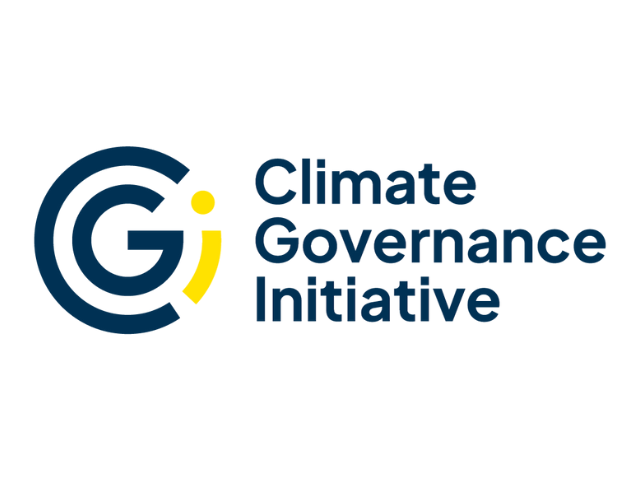
Ambition to Action: Keynote Conversation 3
12 October 2022
Businesses are at the forefront of driving climate action. While regulations currently lag behind IPCC guidance, the private sector is driving change toward lower-carbon pathways. In the final scene setting session of the day, introducing the portion of the programme focussing on the Americas, Antonia Gawel moderated a conversation with Rahul Bhardwaj and Clarissa Lins on the Global Summit’s theme of Ambition to Action. This high-level discussion focussed on current drivers and challenges for boards, and the tools that are available to help directors meet these challenges in the transition to net zero amid a changing regulatory landscape. This webinar focusses on Climate Governance Principle 8 and the exchange between shareholders, other stakeholders, and the board with the purpose to accelerate the climate and sustainability agenda. More →
What gets measured: how investors approach climate and metrics
12 October 2022
The short-term outlook of the financial sector will prevent sector players from seeing the cost of the risks of climate change. The current challenges faced by the corporate sectors include the lack of data in the social and environmental dimensions to do further analysis for measurement, and the lack of requirements to conduct a full and effective impact assessment methodology. More →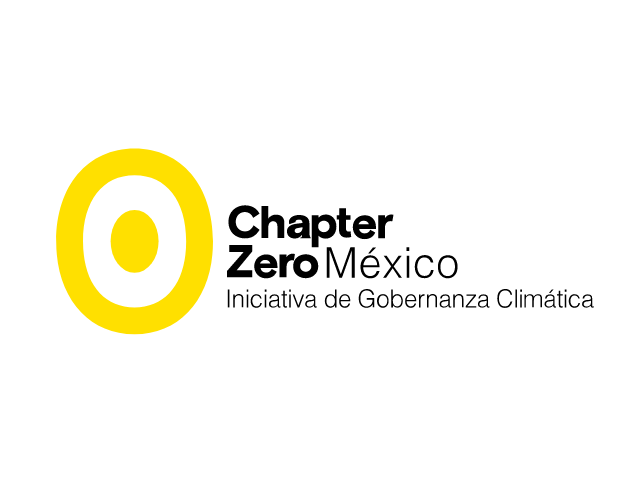
From Glasgow Declaration to climate action: Towards a net zero, nature positive tourism industry
14 November 2022
This session updates on the achievements in the tourism sector one year after the Glasgow Declaration at COP 26, and the challenges to active pathways (Measure, Decarbonise, Regenerate, Collaborate, and Finance). More →
Climate and people: putting passion into board practice
12 October 2022
This session featured an interesting and inspiring exchange of ideas where climate governance was discussed from various perspectives: finance, technology and innovation, and with regards to how multiple roles and perspectives within a supervisory board could benefit climate protection and sustainability. More →
Strategic Integration of Sustainability – Accelerated by Engaged and Active Owners
12 October 2022
How can the value creation agenda be improved and accelerated through proactive owners and their engagement with the board? This webinar focusses on Climate Governance Principle 8 and the exchange between shareholders, other stakeholders, and the board with the purpose to accelerate the climate and sustainability agenda. More →
Sustainable financing, sustainable future?
12 October 2022
The climate crisis is not just an environmental phenomenon, it is a social imperative demanding an economic transformation across all sectors. Both physical and transition risks are profoundly changing the landscape companies operate in, so boards need to adapt and demonstrate how their businesses will thrive by delivering solutions. More →
Subject Command
The board should be properly informed about climate-related risks and opportunities and able to make relevant decisions.

Strategic Integration of Sustainability – Accelerated by Engaged and Active Owners
12 October 2022
How can the value creation agenda be improved and accelerated through proactive owners and their engagement with the board? This webinar focusses on Climate Governance Principle 8 and the exchange between shareholders, other stakeholders, and the board with the purpose to accelerate the climate and sustainability agenda. More →
Voices of youth for a cleaner, greener future
12 October 2022
Empowering young people is key to our goal of tackling climate change. Neglecting young people means neglecting a transformational opportunity to lay the foundation for a peaceful and sustainable future. More →
Climate and people: putting passion into board practice
12 October 2022
This session featured an interesting and inspiring exchange of ideas where climate governance was discussed from various perspectives: finance, technology and innovation, and with regards to how multiple roles and perspectives within a supervisory board could benefit climate protection and sustainability. More →
Ambition to Action: Keynote Conversation 3
12 October 2022
Businesses are at the forefront of driving climate action. While regulations currently lag behind IPCC guidance, the private sector is driving change toward lower-carbon pathways. In the final scene setting session of the day, introducing the portion of the programme focussing on the Americas, Antonia Gawel moderated a conversation with Rahul Bhardwaj and Clarissa Lins on the Global Summit’s theme of Ambition to Action. This high-level discussion focussed on current drivers and challenges for boards, and the tools that are available to help directors meet these challenges in the transition to net zero amid a changing regulatory landscape. This webinar focusses on Climate Governance Principle 8 and the exchange between shareholders, other stakeholders, and the board with the purpose to accelerate the climate and sustainability agenda. More →
Zero ambitions: what is the role of boards on climate?
12 October 2022
This session discussed the roles of the board, their responsibilities, and strategic options they can take in managing climate risks (i.e. emissions reduction targets) and taking advantage of associated opportunities. More →
Ambition to Action: Keynote Conversation 2
12 October 2022
In this inspiring welcome session, introducing the programme primarily focussed on programming from European Chapters, Emily Farnworth and Angeles Garcia-Poveda discussed Angeles’ personal journey in climate governance and highlighted the transition from generalised climate and ESG conversations to focused changes to corporate governance and culture. Angeles reflected on the role of being a parent in thinking about the future of climate and her role in facilitating solutions for a high-carbon sector and shared what she has seen work in developing impactful climate governance on her board. More →
Ambition to Action: Global Summit 2022 Closing Remarks
12 October 2022
Bringing 24 hours of inspiring and action-focused sessions to a close, Cristián Rodríguez-Chiffelle, Climate Governance Initiative Board member and Karina Litvack, Chairman of the Climate Governance Initiative, delivered their closing remarks. More →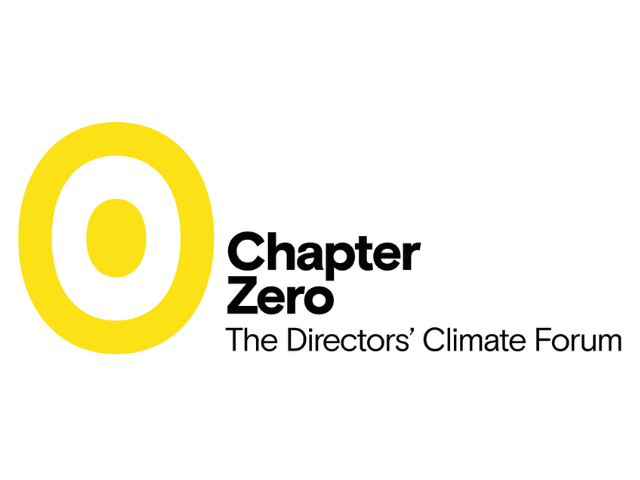
Boardroom decisions: act on a fictional board playing out its net zero strategy
12 October 2022
As temporary members of the board of a fictitious global food manufacturing company ‘EatWell Plc’, attendees were invited to vote on strategic issues in four different scenarios between now and 2030. The outcome of their votes was then discussed by our panel of experts, who provided insights into emerging dilemmas facing companies as they tackle the changing climate environment. More →
What gets measured: how investors approach climate and metrics
12 October 2022
The short-term outlook of the financial sector will prevent sector players from seeing the cost of the risks of climate change. The current challenges faced by the corporate sectors include the lack of data in the social and environmental dimensions to do further analysis for measurement, and the lack of requirements to conduct a full and effective impact assessment methodology. More →
Ambition to Action: Keynote Conversation 1
12 October 2022
In this first of three keynote panels on ‘Ambition to Action’, to open the Climate Governance Initiative Global Summit in the Asia Pacific region, Shai Ganu and Penny Bingham-Hall discussed how boards are tackling climate change and where improvements need to be made. More →
Sustainable financing, sustainable future?
12 October 2022
The climate crisis is not just an environmental phenomenon, it is a social imperative demanding an economic transformation across all sectors. Both physical and transition risks are profoundly changing the landscape companies operate in, so boards need to adapt and demonstrate how their businesses will thrive by delivering solutions. More →
Board Structure
The board should implement the right board and committee structures to ensure that climate risks and opportunities are understood, managed and reported.

Sustainability or ESG Committees: how to structure your board
12 October 2022
This session provided practical guidance for integrating climate change into decision making through appropriate governance structures. The key takeaway being that an organisation’s approach will depend on the entity, sector, size, and maturity. In practice, a Sustainability Committee may help move the dial on ‘legwork’ and support for climate and ESG. However, oversight of strategy and risk is a key board accountability, so committees are supporting structures only. More →
Climate and people: putting passion into board practice
12 October 2022
This session featured an interesting and inspiring exchange of ideas where climate governance was discussed from various perspectives: finance, technology and innovation, and with regards to how multiple roles and perspectives within a supervisory board could benefit climate protection and sustainability. More →
Materiality Assessment
The board should ensure that management fully identifies climate-related risks in the short, medium and long-term, assess their materiality, and takes appropriate action according to the materiality of the risks.

Climate governance and war: How the CGI principles can support corporates to overcome the regional economic and energy crisis
12 October 2022
Chapter Zero Ukraine & Caucasus, together with Chapter Zero Poland, hosted a discussion about the challenges in the current war and energy crises, investment in ESG, green recovery and options for providing energy across Europe in the face of war and climate change. More →
Strategic Integration of Sustainability – Accelerated by Engaged and Active Owners
12 October 2022
How can the value creation agenda be improved and accelerated through proactive owners and their engagement with the board? This webinar focusses on Climate Governance Principle 8 and the exchange between shareholders, other stakeholders, and the board with the purpose to accelerate the climate and sustainability agenda. More →
Zero ambitions: what is the role of boards on climate?
12 October 2022
This session discussed the roles of the board, their responsibilities, and strategic options they can take in managing climate risks (i.e. emissions reduction targets) and taking advantage of associated opportunities. More →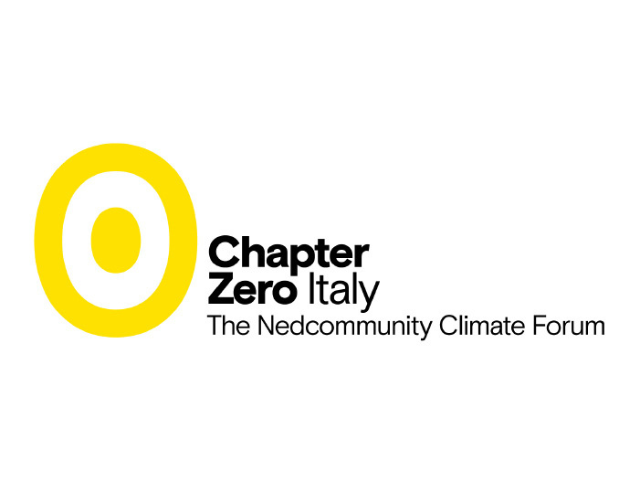
The climate change challenge in the real estate industry: Board responsibility and capacity building in engaging investors and protecting portfolios values
12 October 2022
The real estate sector is responsible for 40% of energy consumption and 36% of carbon emissions, therefore, is able to play a key role in the mitigation of climate change towards net zero. The conference emphasized the delicate issue of ecological transition of one of the most important sectors for the economy in one in one of the most critical phases since the Second World War. More →
Sustainable financing, sustainable future?
12 October 2022
The climate crisis is not just an environmental phenomenon, it is a social imperative demanding an economic transformation across all sectors. Both physical and transition risks are profoundly changing the landscape companies operate in, so boards need to adapt and demonstrate how their businesses will thrive by delivering solutions. More →
From Glasgow Declaration to climate action: Towards a net zero, nature positive tourism industry
14 November 2022
This session updates on the achievements in the tourism sector one year after the Glasgow Declaration at COP 26, and the challenges to active pathways (Measure, Decarbonise, Regenerate, Collaborate, and Finance). More →
What gets measured: how investors approach climate and metrics
12 October 2022
The short-term outlook of the financial sector will prevent sector players from seeing the cost of the risks of climate change. The current challenges faced by the corporate sectors include the lack of data in the social and environmental dimensions to do further analysis for measurement, and the lack of requirements to conduct a full and effective impact assessment methodology. More →
Boardroom decisions: act on a fictional board playing out its net zero strategy
12 October 2022
As temporary members of the board of a fictitious global food manufacturing company ‘EatWell Plc’, attendees were invited to vote on strategic issues in four different scenarios between now and 2030. The outcome of their votes was then discussed by our panel of experts, who provided insights into emerging dilemmas facing companies as they tackle the changing climate environment. More →
Climate and people: putting passion into board practice
12 October 2022
This session featured an interesting and inspiring exchange of ideas where climate governance was discussed from various perspectives: finance, technology and innovation, and with regards to how multiple roles and perspectives within a supervisory board could benefit climate protection and sustainability. More →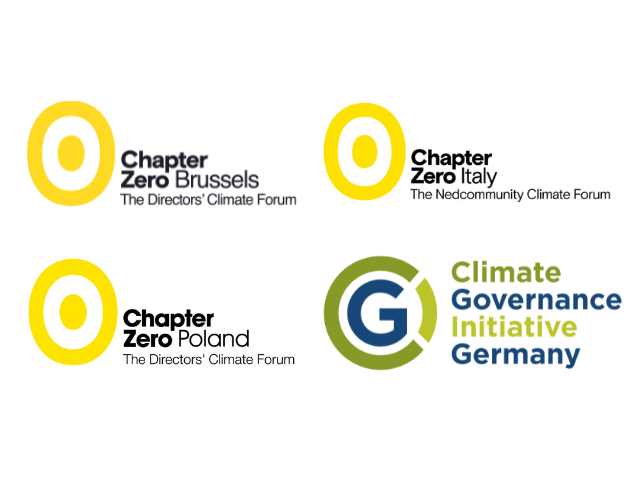
Europe Energy Transition: a balancing act between securing energy and net zero targets
12 October 2022
The Coronavirus first, and the tilting of the global geopolitical chessboard afterwards, have created emergency situations to which governments are responding with extraordinary measures. Will the journey toward net zero goals be redrafted? Shall companies’ investments be reviewed under such volatile and uncertain scenarios? How can boards of directors keep the bar high on climate mitigation strategies? More →
Strategic Integration
The board should ensure that management factors material climate-related risks and opportunities into the company’s strategy, risk management process and investment decisions.

Boardroom decisions: act on a fictional board playing out its net zero strategy
12 October 2022
As temporary members of the board of a fictitious global food manufacturing company ‘EatWell Plc’, attendees were invited to vote on strategic issues in four different scenarios between now and 2030. The outcome of their votes was then discussed by our panel of experts, who provided insights into emerging dilemmas facing companies as they tackle the changing climate environment. More →
Climate and people: putting passion into board practice
12 October 2022
This session featured an interesting and inspiring exchange of ideas where climate governance was discussed from various perspectives: finance, technology and innovation, and with regards to how multiple roles and perspectives within a supervisory board could benefit climate protection and sustainability. More →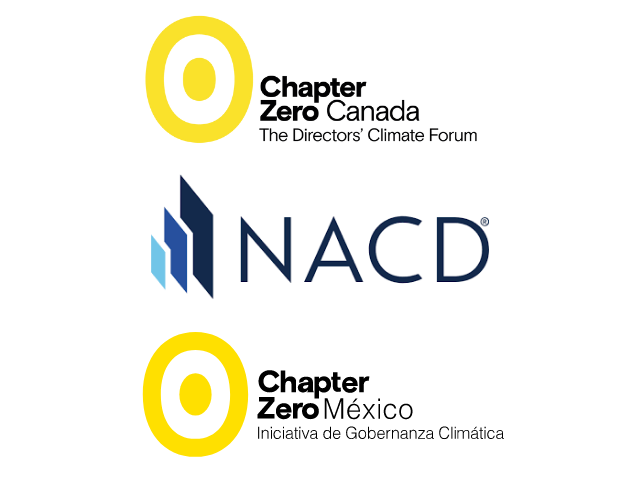
Climate Change Beyond Borders: Incorporating supply chains into your boardroom climate strategy
24 November 2022
This session discussed how supply chain strategy is gaining greater prominence within the boardrooms as organizations manage their transition to a net zero future. Supply chain strategy is a critical issue for boardrooms across North America as organizations face transportation bottlenecks, increased political risk, sustainability concerns and increased trade barriers. More →
Europe Energy Transition: a balancing act between securing energy and net zero targets
12 October 2022
The Coronavirus first, and the tilting of the global geopolitical chessboard afterwards, have created emergency situations to which governments are responding with extraordinary measures. Will the journey toward net zero goals be redrafted? Shall companies’ investments be reviewed under such volatile and uncertain scenarios? How can boards of directors keep the bar high on climate mitigation strategies? More →
Ambition to Action: Keynote Conversation 1
12 October 2022
In this first of three keynote panels on ‘Ambition to Action’, to open the Climate Governance Initiative Global Summit in the Asia Pacific region, Shai Ganu and Penny Bingham-Hall discussed how boards are tackling climate change and where improvements need to be made. More →
Strategic Integration of Sustainability – Accelerated by Engaged and Active Owners
12 October 2022
How can the value creation agenda be improved and accelerated through proactive owners and their engagement with the board? This webinar focusses on Climate Governance Principle 8 and the exchange between shareholders, other stakeholders, and the board with the purpose to accelerate the climate and sustainability agenda. More →
Ambition to Action: Global Summit 2022 Closing Remarks
12 October 2022
Bringing 24 hours of inspiring and action-focused sessions to a close, Cristián Rodríguez-Chiffelle, Climate Governance Initiative Board member and Karina Litvack, Chairman of the Climate Governance Initiative, delivered their closing remarks. More →
The climate change challenge in the real estate industry: Board responsibility and capacity building in engaging investors and protecting portfolios values
12 October 2022
The real estate sector is responsible for 40% of energy consumption and 36% of carbon emissions, therefore, is able to play a key role in the mitigation of climate change towards net zero. The conference emphasized the delicate issue of ecological transition of one of the most important sectors for the economy in one in one of the most critical phases since the Second World War. More →
Ambition to Action: Keynote Conversation 3
12 October 2022
Businesses are at the forefront of driving climate action. While regulations currently lag behind IPCC guidance, the private sector is driving change toward lower-carbon pathways. In the final scene setting session of the day, introducing the portion of the programme focussing on the Americas, Antonia Gawel moderated a conversation with Rahul Bhardwaj and Clarissa Lins on the Global Summit’s theme of Ambition to Action. This high-level discussion focussed on current drivers and challenges for boards, and the tools that are available to help directors meet these challenges in the transition to net zero amid a changing regulatory landscape. This webinar focusses on Climate Governance Principle 8 and the exchange between shareholders, other stakeholders, and the board with the purpose to accelerate the climate and sustainability agenda. More →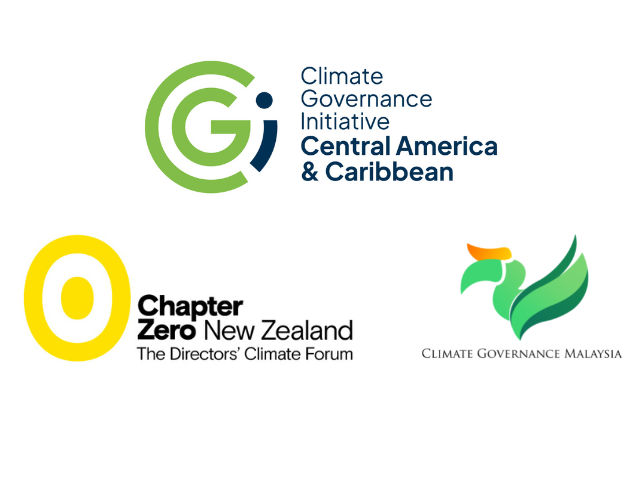
Agriculture Sector: Challenges and Actions
12 October 2022
Climate change is impacting the agricultural sector at a rapid pace. Tropical storms, flooding, rising sea levels and coastal erosion all affect agriculture and the ability for farmers to sustain crops and meet supply and demand. More →
Climate governance and war: How the CGI principles can support corporates to overcome the regional economic and energy crisis
12 October 2022
Chapter Zero Ukraine & Caucasus, together with Chapter Zero Poland, hosted a discussion about the challenges in the current war and energy crises, investment in ESG, green recovery and options for providing energy across Europe in the face of war and climate change. More →
Incentivization
The board should align executives’ incentives with the long-term success of the business. This may include climate-related targets in executive incentive schemes.

Ambition to Action: Keynote Conversation 1
12 October 2022
In this first of three keynote panels on ‘Ambition to Action’, to open the Climate Governance Initiative Global Summit in the Asia Pacific region, Shai Ganu and Penny Bingham-Hall discussed how boards are tackling climate change and where improvements need to be made. More →
Climate governance and war: How the CGI principles can support corporates to overcome the regional economic and energy crisis
12 October 2022
Chapter Zero Ukraine & Caucasus, together with Chapter Zero Poland, hosted a discussion about the challenges in the current war and energy crises, investment in ESG, green recovery and options for providing energy across Europe in the face of war and climate change. More →
Ambition to Action: Keynote Conversation 3
12 October 2022
Businesses are at the forefront of driving climate action. While regulations currently lag behind IPCC guidance, the private sector is driving change toward lower-carbon pathways. In the final scene setting session of the day, introducing the portion of the programme focussing on the Americas, Antonia Gawel moderated a conversation with Rahul Bhardwaj and Clarissa Lins on the Global Summit’s theme of Ambition to Action. This high-level discussion focussed on current drivers and challenges for boards, and the tools that are available to help directors meet these challenges in the transition to net zero amid a changing regulatory landscape. This webinar focusses on Climate Governance Principle 8 and the exchange between shareholders, other stakeholders, and the board with the purpose to accelerate the climate and sustainability agenda. More →
Ambition to Action: Global Summit 2022 Closing Remarks
12 October 2022
Bringing 24 hours of inspiring and action-focused sessions to a close, Cristián Rodríguez-Chiffelle, Climate Governance Initiative Board member and Karina Litvack, Chairman of the Climate Governance Initiative, delivered their closing remarks. More →
Strategic Integration of Sustainability – Accelerated by Engaged and Active Owners
12 October 2022
How can the value creation agenda be improved and accelerated through proactive owners and their engagement with the board? This webinar focusses on Climate Governance Principle 8 and the exchange between shareholders, other stakeholders, and the board with the purpose to accelerate the climate and sustainability agenda. More →
Reporting and Disclosure
The board should ensure that the company discloses its material climate-related risks, opportunities and strategic decisions to all stakeholders – especially investors and regulators. These disclosures should be included in financial reporting.

From Glasgow Declaration to climate action: Towards a net zero, nature positive tourism industry
14 November 2022
This session updates on the achievements in the tourism sector one year after the Glasgow Declaration at COP 26, and the challenges to active pathways (Measure, Decarbonise, Regenerate, Collaborate, and Finance). More →
What gets measured: how investors approach climate and metrics
12 October 2022
The short-term outlook of the financial sector will prevent sector players from seeing the cost of the risks of climate change. The current challenges faced by the corporate sectors include the lack of data in the social and environmental dimensions to do further analysis for measurement, and the lack of requirements to conduct a full and effective impact assessment methodology. More →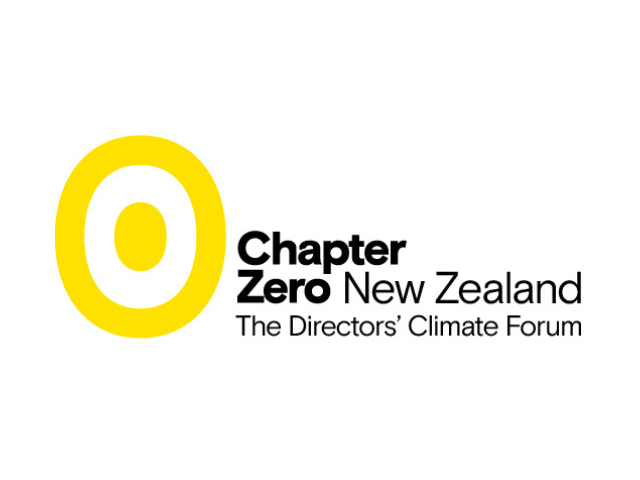
New Zealand’s progress towards climate-related disclosures
25 November 2022
In 2023, around 200 New Zealand entities will be required to produce mandatory climate-related disclosures designed to help New Zealand meet its international obligations and achieve its target of net zero carbon by 2050. The disclosures will be against a standard designed and issued by the External Reporting Board (XRB; an independent Crown entity), in line with the recommendations of the Task Force on Climate-related Financial Disclosures (TCFD). More →
Zero ambitions: what is the role of boards on climate?
12 October 2022
This session discussed the roles of the board, their responsibilities, and strategic options they can take in managing climate risks (i.e. emissions reduction targets) and taking advantage of associated opportunities. More →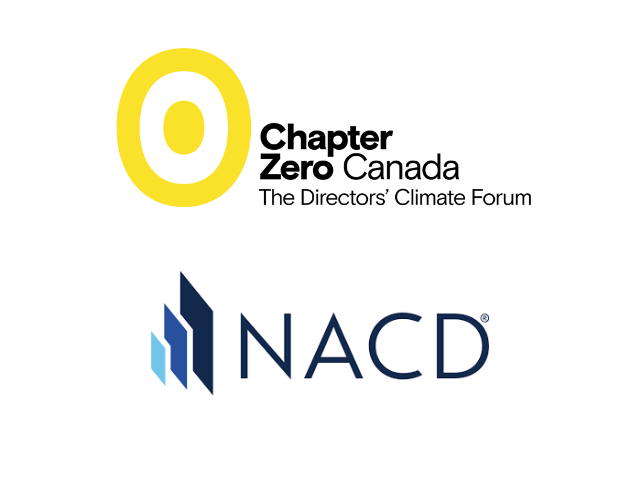
Preparing Boardrooms for New Climate-Related Disclosure Rules: A US/Canadian Perspective
12 October 2022
Earlier this year, the Securities Exchange Commission (SEC) and the Canadian Securities Administrator (CSA) proposed regulations requiring corporate issuers to disclose various practices related to climate change. While these regulations have yet to be passed, there have been strong opinions from both the investor community and companies/trade organizations. Our expert panelists claim boards need to start preparing to meet the requirements outlined by the disclosure rules. More →
Climate Change Beyond Borders: Incorporating supply chains into your boardroom climate strategy
24 November 2022
This session discussed how supply chain strategy is gaining greater prominence within the boardrooms as organizations manage their transition to a net zero future. Supply chain strategy is a critical issue for boardrooms across North America as organizations face transportation bottlenecks, increased political risk, sustainability concerns and increased trade barriers. More →
Sustainable financing, sustainable future?
12 October 2022
The climate crisis is not just an environmental phenomenon, it is a social imperative demanding an economic transformation across all sectors. Both physical and transition risks are profoundly changing the landscape companies operate in, so boards need to adapt and demonstrate how their businesses will thrive by delivering solutions. More →
Exchange
The board should stay informed on current best practice in climate governance by maintaining dialogue with peers, policy-makers, investors and others.

Voices of youth for a cleaner, greener future
12 October 2022
Empowering young people is key to our goal of tackling climate change. Neglecting young people means neglecting a transformational opportunity to lay the foundation for a peaceful and sustainable future. More →
Ambition to Action: Keynote Conversation 2
12 October 2022
In this inspiring welcome session, introducing the programme primarily focussed on programming from European Chapters, Emily Farnworth and Angeles Garcia-Poveda discussed Angeles’ personal journey in climate governance and highlighted the transition from generalised climate and ESG conversations to focused changes to corporate governance and culture. Angeles reflected on the role of being a parent in thinking about the future of climate and her role in facilitating solutions for a high-carbon sector and shared what she has seen work in developing impactful climate governance on her board. More →
What gets measured: how investors approach climate and metrics
12 October 2022
The short-term outlook of the financial sector will prevent sector players from seeing the cost of the risks of climate change. The current challenges faced by the corporate sectors include the lack of data in the social and environmental dimensions to do further analysis for measurement, and the lack of requirements to conduct a full and effective impact assessment methodology. More →
Ambition to Action: Keynote Conversation 3
12 October 2022
Businesses are at the forefront of driving climate action. While regulations currently lag behind IPCC guidance, the private sector is driving change toward lower-carbon pathways. In the final scene setting session of the day, introducing the portion of the programme focussing on the Americas, Antonia Gawel moderated a conversation with Rahul Bhardwaj and Clarissa Lins on the Global Summit’s theme of Ambition to Action. This high-level discussion focussed on current drivers and challenges for boards, and the tools that are available to help directors meet these challenges in the transition to net zero amid a changing regulatory landscape. This webinar focusses on Climate Governance Principle 8 and the exchange between shareholders, other stakeholders, and the board with the purpose to accelerate the climate and sustainability agenda. More →
Strategic Integration of Sustainability – Accelerated by Engaged and Active Owners
12 October 2022
How can the value creation agenda be improved and accelerated through proactive owners and their engagement with the board? This webinar focusses on Climate Governance Principle 8 and the exchange between shareholders, other stakeholders, and the board with the purpose to accelerate the climate and sustainability agenda. More →
Sustainable financing, sustainable future?
12 October 2022
The climate crisis is not just an environmental phenomenon, it is a social imperative demanding an economic transformation across all sectors. Both physical and transition risks are profoundly changing the landscape companies operate in, so boards need to adapt and demonstrate how their businesses will thrive by delivering solutions. More →
Should your board consider a ‘say-on-climate’ vote at the next AGM?
12 October 2022
This session reviews the key dynamics around Say on Climate votes in Europe, including results, proxy advisors’ policies and positions, and emerging trends. More →
Zero ambitions: what is the role of boards on climate?
12 October 2022
This session discussed the roles of the board, their responsibilities, and strategic options they can take in managing climate risks (i.e. emissions reduction targets) and taking advantage of associated opportunities. More →
Climate and people: putting passion into board practice
12 October 2022
This session featured an interesting and inspiring exchange of ideas where climate governance was discussed from various perspectives: finance, technology and innovation, and with regards to how multiple roles and perspectives within a supervisory board could benefit climate protection and sustainability. More →